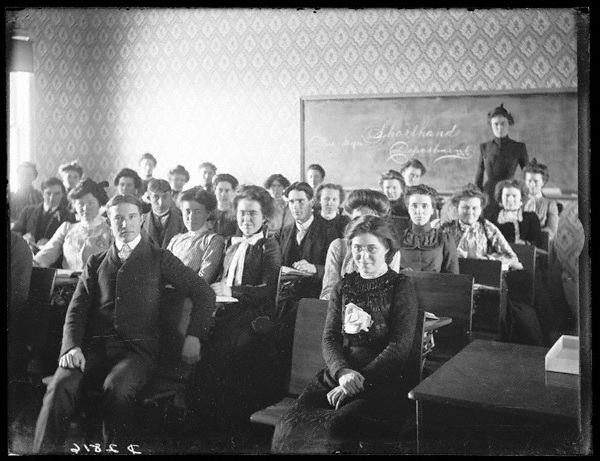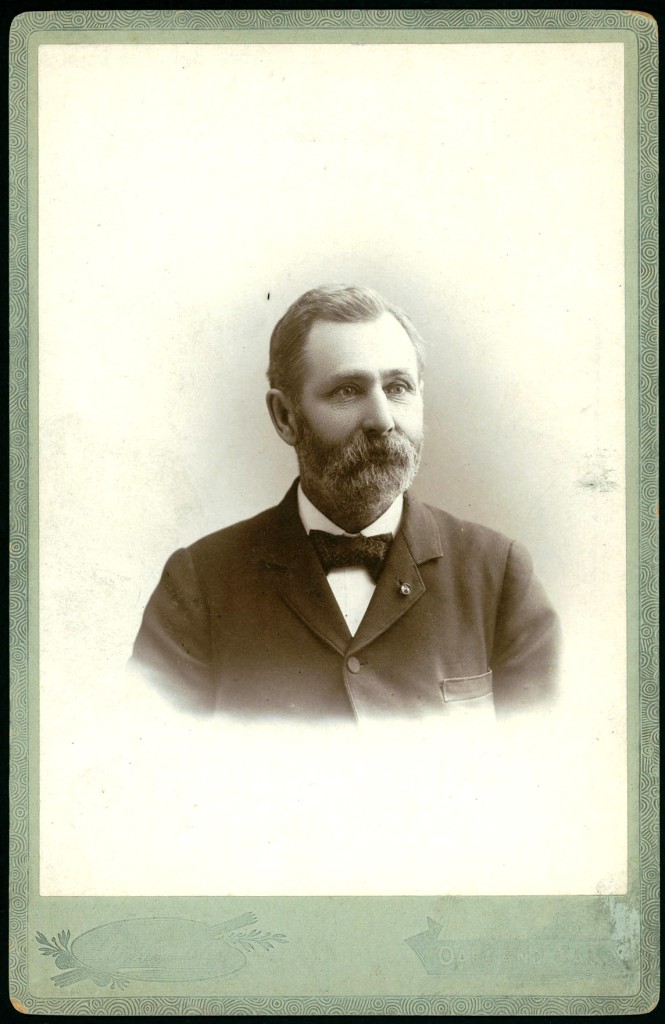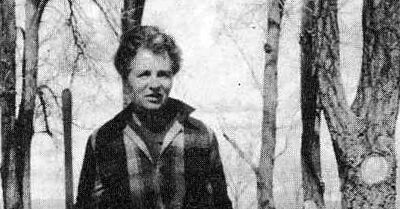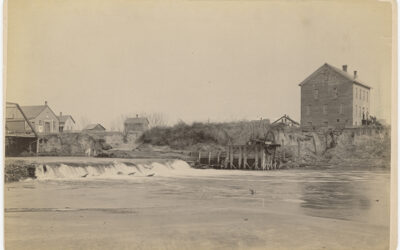Before the invention of recording and dictation machines, shorthand was considered an essential skill for secretaries, journalists, and court reporters. John T. Bell, an early Nebraska stenographer and journalist, in 1889 addressed a meeting of the Nebraska Shorthand Society in Omaha on the history of shorthand use in Nebraska, especially in courtrooms. His remarks were published in the Omaha Bee on May 12, 1889. Bell, the author with James W. Savage of an 1894 history of Omaha, recalled his first experience with court reporting:
“The first case ever reported by shorthand in Nebraska was one tried before Judge [Lorenzo] Crounse at Fremont, in April, 1870, when John Smith, proprietor of a small hotel in that place, was on trial for his life for the killing of one George Gallon of West Point, in consequence of a quarrel over fifteen cents worth of hay.”
Bell said: “This Fremont experience was a hard one. . . . A consciousness that a human life might depend upon the accuracy of my report had a crushing effect upon me, and when I crawled off to bed at 3 o’clock in the morning the case having been commenced at 2 p.m. and rushed along to a close I was so exhausted that I did not care whether I awakened again in this life or not.” In addition to the physical and nervous strain, Bell suffered from the fear that he might not be able to read his notes.
However, Bell discovered that “upon tackling my notes after a sound and dreamless sleep of several hours, they unwound themselves before me in the pleasantest manner imaginable.” Bell concluded his address to the shorthand society by showing his audience the first page of his shorthand notes from the 1870 trial and declaring, “Indeed, I was rather proud of them.”
 Photographer Solomon D. Butcher depicted students in a shorthand class at Broken Bow in 1903. NSHS RG2608-2816
Photographer Solomon D. Butcher depicted students in a shorthand class at Broken Bow in 1903. NSHS RG2608-2816
Smith, the accused in the 1870 trial reported by Bell, was convicted and sentenced to ten years in the Nebraska State Penitentiary. However, historian A. T. Andreas noted in his commentary on the crime, that he escaped from jail shortly after the trial “and no further trace of him was ever discovered.” – Patricia C. Gaster, Assistant Editor / Publications





